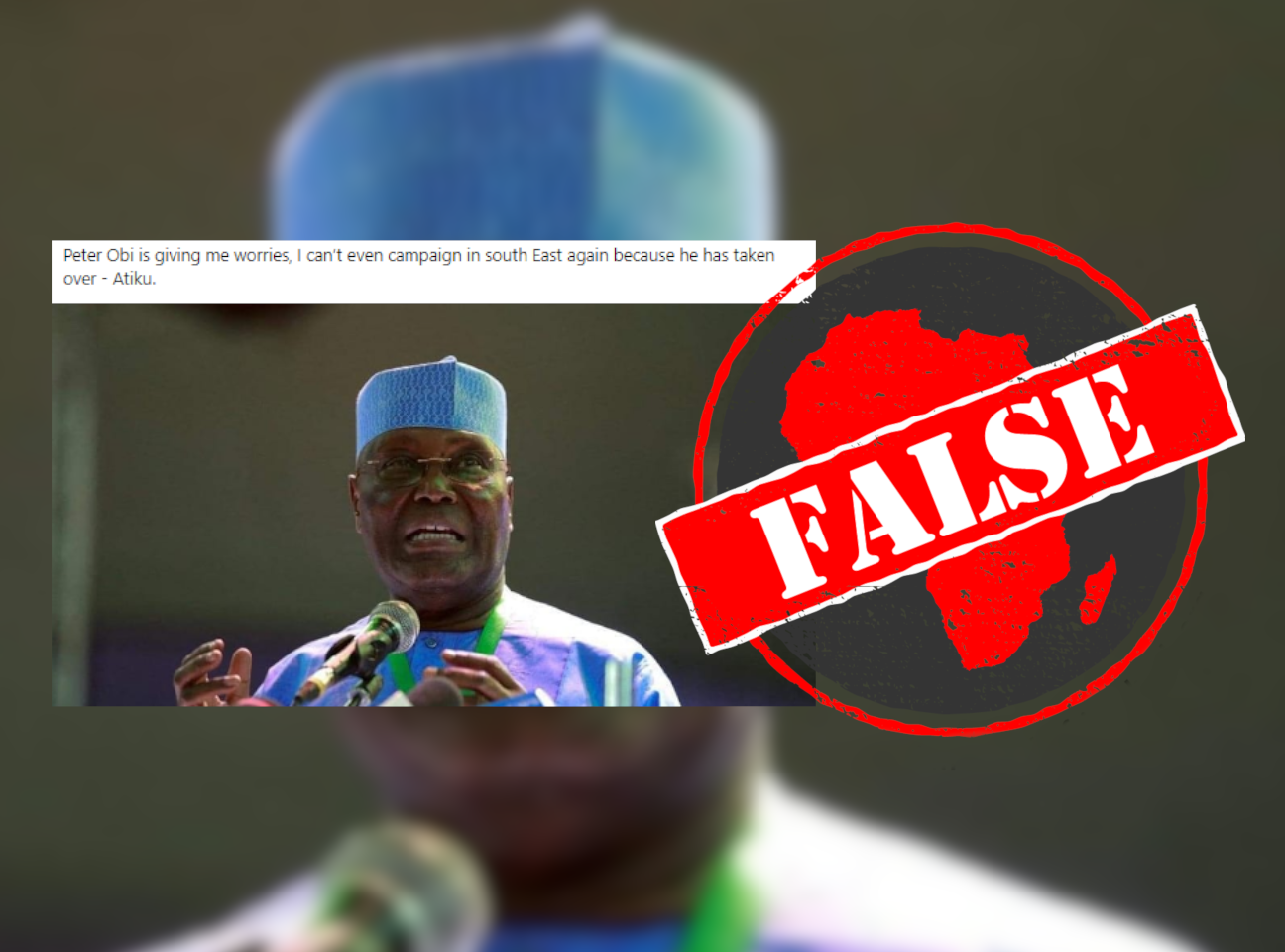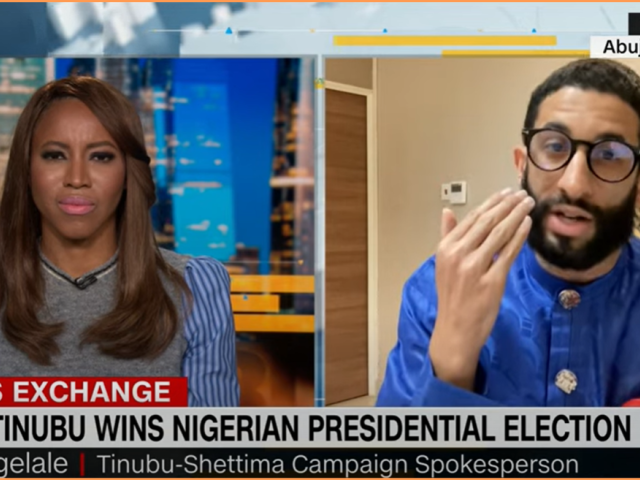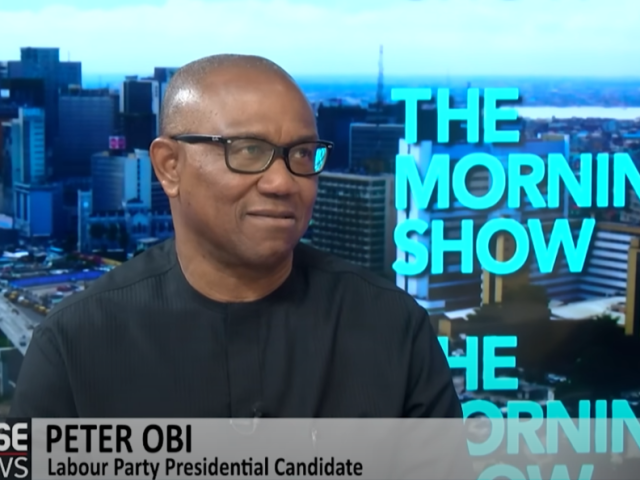"Peter Obi is giving me worries, I can’t even campaign in south East again because he has taken over.” That’s a quote by Nigerian presidential candidate for the People’s Democratic Party (PDP), Atiku Abubakar, according to an 18 August 2022 Facebook post.
The claim was also repeated in other Facebook posts and on Twitter.
But is it true Abubakar said this?

No evidence for quote
Peter Obi is a Nigerian politician and the presidential candidate for the Labour Party in the country’s forthcoming February 2023 elections. Obi was Abubakar’s running mate in the 2019 presidential election.
Abubakar was vice-president of Nigeria from 1999 to 2007, under president Olusegun Obasanjo.
None of the social media posts gave any details of where or when the PDP leader was meant to have made the comment.
A search through his verified Twitter handle and other social media platforms returned no evidence of the statement.
There were no reports of the statement in credible local news outlets, which would be expected if it were true.
We found no evidence that Abubakar said Obi was “giving him worries”.
On 22 August, they both attended the Nigerian Bar Association annual general conference in Lagos, Nigeria’s largest city, where they spoke on affairs concerning the country.
Furthermore, according to the timetable released by the Independent National Electoral Commission, official presidential campaigning in Nigeria only starts 28 September 2022.
As Nigeria’s 2023 elections approach, Africa Check is seeing an increasing number of quotes and comments falsely attributed to key political figures. This may distort political debate online and in real life, and so reduce voters’ ability to make informed choices.
Republish our content for free
For publishers: what to do if your post is rated false
A fact-checker has rated your Facebook or Instagram post as “false”, “altered”, “partly false” or “missing context”. This could have serious consequences. What do you do?
Click on our guide for the steps you should follow.
Publishers guideAfrica Check teams up with Facebook
Africa Check is a partner in Meta's third-party fact-checking programme to help stop the spread of false information on social media.
The content we rate as “false” will be downgraded on Facebook and Instagram. This means fewer people will see it.
You can also help identify false information on Facebook. This guide explains how.




Add new comment